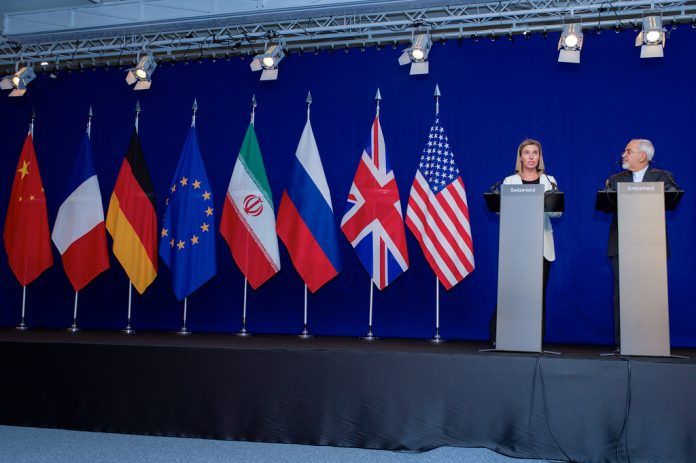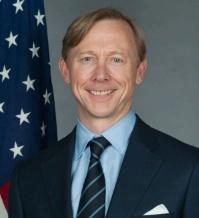
WASHINGTON, Aug 24 (Reuters) – The top U.S. envoy on Iran criticized a European Union decision to give $20.7 million in aid to Tehran on Friday, saying it sent “the wrong message at the wrong time,” and he urged Brussels to help Washington end the Iranian threat to global stability.
“Foreign aid from European taxpayers perpetuates the regime’s ability to neglect the needs of its people and stifles meaningful policy changes,” Brian Hook, the U.S. special representative for Iran, said in a statement.

“The Iranian people face very real economic pressures caused by their government’s corruption, mismanagement, and deep investment in terrorism and foreign conflicts,” he added. “The United States and the European Union should be working together instead to find lasting solutions that truly support Iran’s people and end the regime’s threats to regional and global stability.”
The EU decision on Thursday to provide 18 million euros ($20.7 million) in aid to Iran was aimed at offsetting the impact of U.S. sanctions as European countries try to salvage the 2015 agreement that saw Tehran limit its nuclear ambitions.
President Donald Trump pulled the United States out of the nuclear deal in May and is reimposing sanctions on Tehran, even as other parties to the accord are trying to find ways to save the agreement.
The EU funding is part of a wider package of 50 million euros earmarked in the EU budget for Iran, which has threatened to stop complying with the nuclear accord if it fails to see the economic benefit of relief from sanctions.
The United States is pressing other countries to comply with its sanctions.
“More money in the hands of the ayatollah means more money to conduct assassinations in those very European countries,” Hook said in his statement.
U.S. national security adviser John Bolton told Reuters during a visit to Israel earlier this week that the return of U.S. sanctions was having a strong effect on Iran’s economy and popular opinion.
The U.S. sanctions dusted off this month targeted Iran’s car industry, trade in gold and other precious metals, and purchases of U.S. dollars crucial to international financing and investment and trade relations. Farther-reaching sanctions are to follow in November on Iran’s banking sector and oil exports.
(Reporting by David Alexander; Editing by Eric Beech and Leslie Adler)

